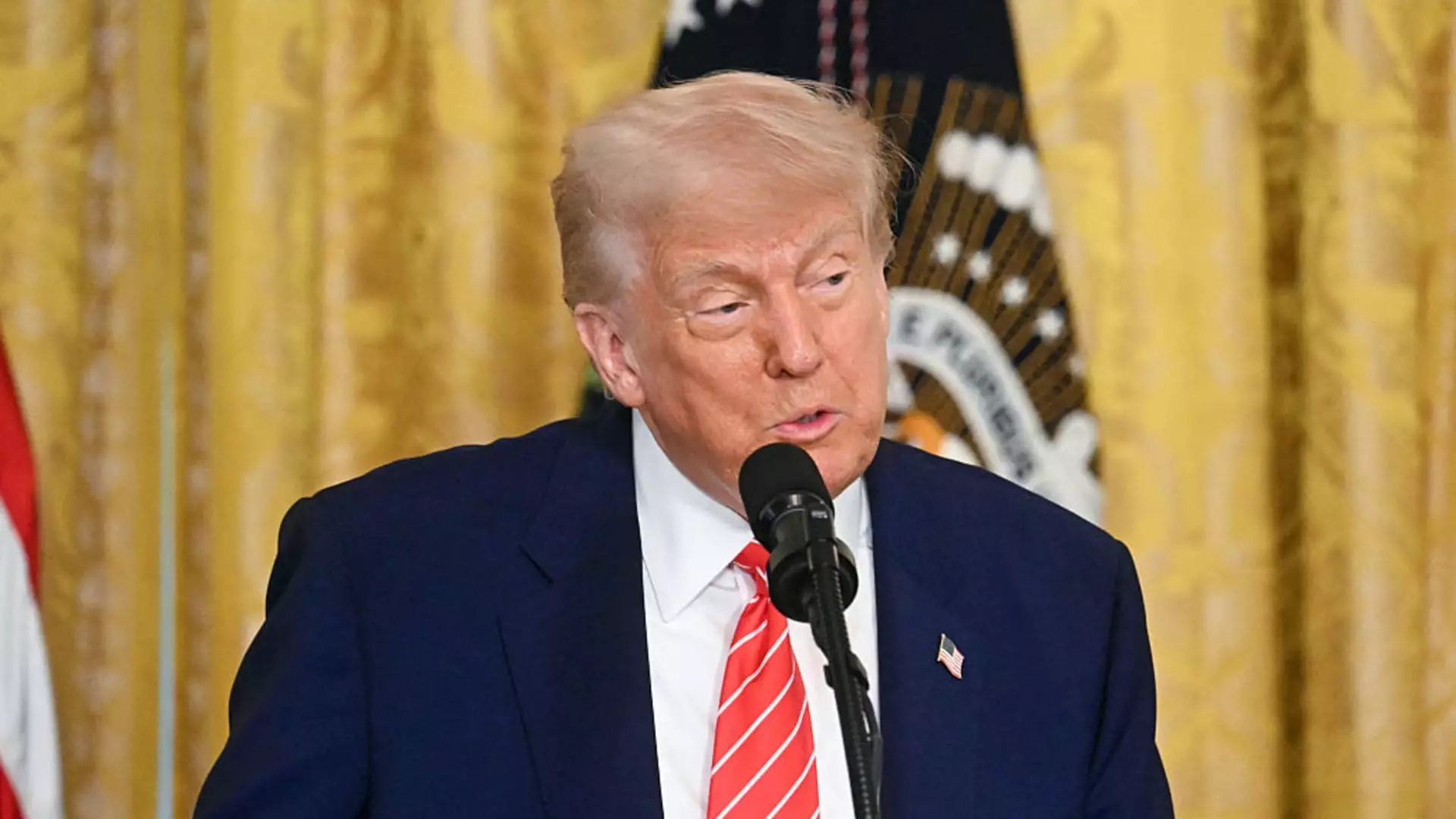In a dramatic push to lower prescription drug costs, President Donald Trump is set to revive the “most favored nation” policy that aims to tether U.S. drug prices to lower rates abroad. For too long, American citizens have been the ones footing the bill for global pharmaceutical research and development, while foreign countries enjoy significantly lower prices. This reality is not just financially burdensome; it is an ethical dilemma. In an era when healthcare should be a right, it is indefensible that American families are left grappling with exorbitant medical expenses that could easily be mitigated through stronger governmental interventions.
The backdrop to this maneuver is a market system that has historically favored pharmaceutical giants over American consumers. Trump’s announcement of new executive orders signals a contentious battle against an industry that has repeatedly proven its willingness to prioritize profits over public health. Despite the euphemistic claims of pharmaceutical companies about fostering innovation, there exists a growing public sentiment that their business models inherently exploit American patients.
Reactions from Industry and Public Perspectives
While the pharmaceutical industry has historically resisted policies aimed at price reductions, it is crucial to recognize that a significant portion of the American public supports such reforms. Recent polling reveals that over 75% of U.S. adults find their medication costs unaffordable. This clear disconnect between corporate profit motives and consumer needs underscores a failing of the industry and raises the question of who is accountable for putting patients first.
In rallying behind the “most favored nation” policy, Trump is defying the industry that has threatened to undermine his efforts. Pharmaceutical executives warn that price reductions could endanger their research capabilities and, by extension, future medical advancements. However, if public sentiment reflects a desire for change, why should corporate fears take precedence over the health and well-being of American citizens? The resistance to the policy could suggest a prioritization of profit margins over patient care—a dangerous precedent that voters across the political spectrum cannot afford to ignore.
The Unforeseen Consequences of Pricing Policies
Even as this policy rolls out, skepticism abounds regarding its effectiveness. Experts have pointed out that a “most favored nation” approach might merely yield superficial changes rather than address the underlying issues plaguing drug pricing in the U.S. The nuances of global pharmaceutical economics can’t be easily overlooked, as experts reveal that 70% of pharmaceutical profits originate from American consumers. This dynamic implies that if companies are pressured to reduce U.S. prices, they may abandon not just the overseas market, but also their responsibility toward those markets that provide crucial funding for their innovations.
Critics argue that these actions might inadvertently dissuade drug manufacturers from taking risks on new therapies or entering promising markets for groundbreaking medication. Can we afford to gamble with innovation right when our healthcare system requires stability and accessibility the most? If the industry’s concerns are valid, a balance between reasonable profits and essential healthcare needs should be the goal of policy-making.
The Role of Political Pressure and Legislative Hurdles
The political landscape complicates matters further, as lawmakers on both sides of the aisle have been divided on how to proceed with drug pricing reform. The Biden administration recently rescinded Trump’s policy efforts, and some Republican members seem skeptical about comprehensive pricing reforms, fearing they will lead to detrimental economic impacts. The pharmaceutical industry’s lobbying power has shown that it can stall political advancements toward progressive healthcare measures, leaving patients in a precarious position.
However, what cannot be overlooked is that drug pricing reform should transcend party lines. This is a fundamental human issue that requires bipartisan collaboration. The ability for Medicare to negotiate drug prices represents a seismic shift but also comes laden with fears of sector backlash. With Trump’s recent tariff announcements aimed at bolstering domestic drug manufacturing, there exists an opportunity to fundamentally reshape the way we approach healthcare—they deserve a space in political discourse devoid of corporate bias.
Trump’s intentions to streamline drug manufacturing and enhance U.S. production capabilities might provide the necessary political leverage. Nevertheless, the question remains: how will these policies, if implemented, confront the entrenched systemic hurdles and interests that have long dictated the narrative in American healthcare? A strong response is necessary; otherwise, the cycle of corporate-driven patient neglect will continue unabated.
The journey toward affordable medication is fraught with complications, but extraordinary change often emerges from the most contentious debates. Whether the “most favored nation” policy becomes a pivotal turning point or merely another ploy in a long-term corporate chess game remains to be seen. What is unequivocally clear is that the American populace deserves better—and they deserve it now.

